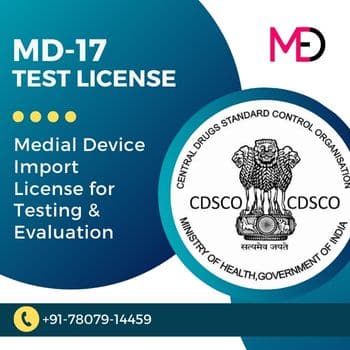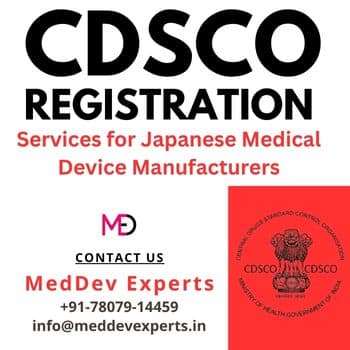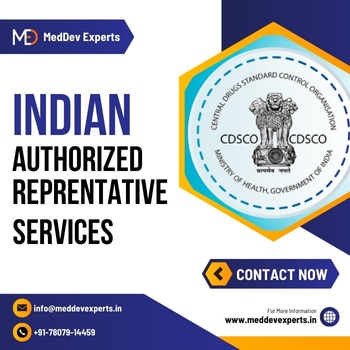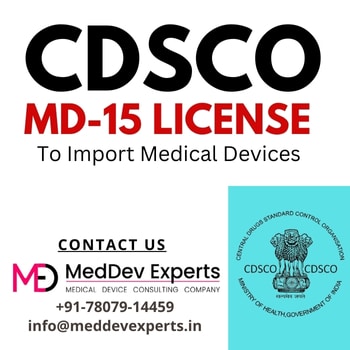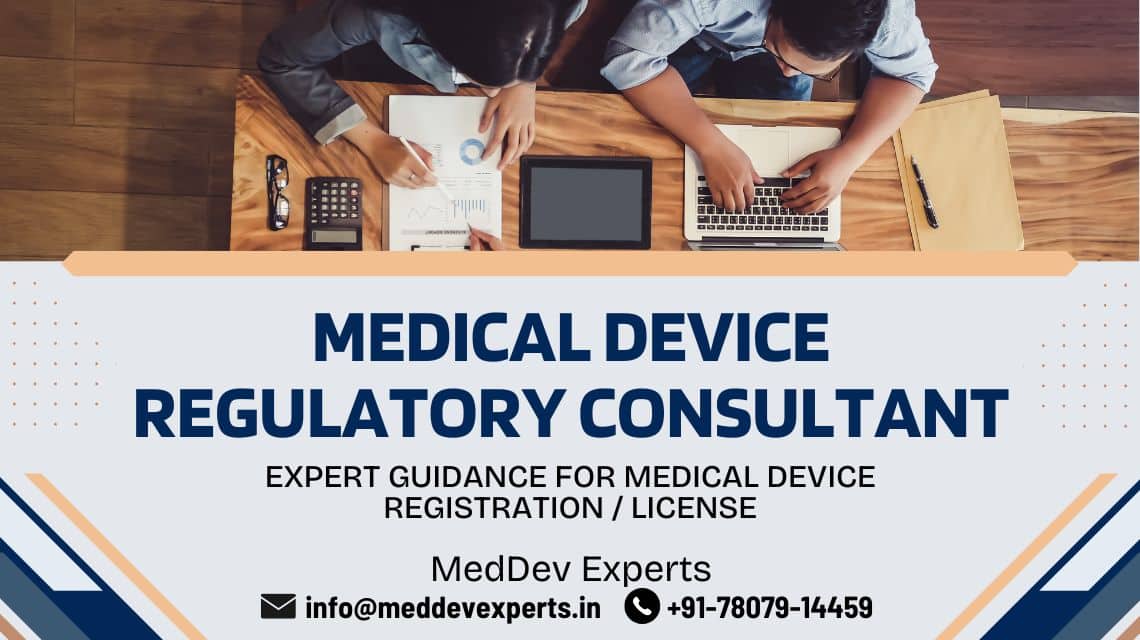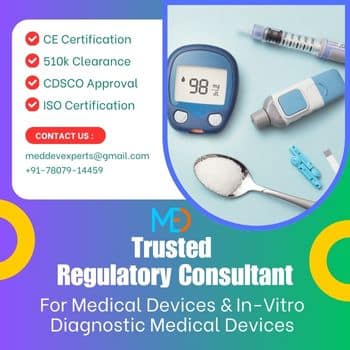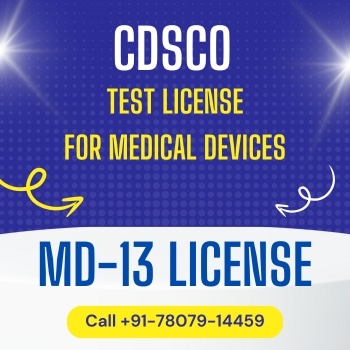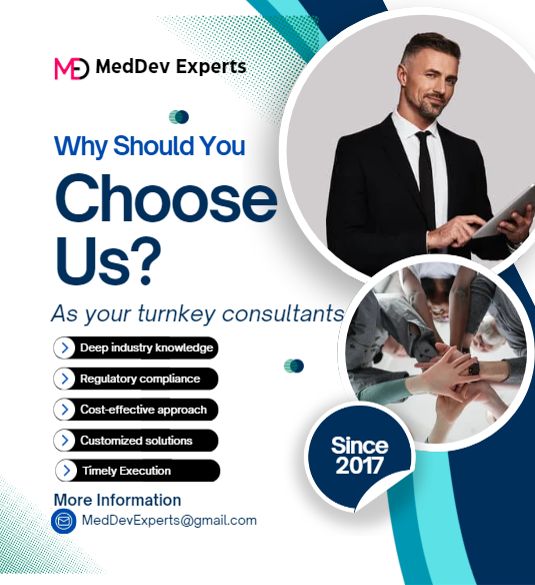The Ultimate Guide to MD 17 Test License to Import Medical Devices
Are you navigating the complex world of medical device importation in India? If so, you’ve likely encountered the crucial MD 17 Test License. This pivotal document is your gateway to importing medical devices for testing, evaluation, clinical investigations, and more. But obtaining it can be a daunting task, fraught with regulatory hurdles and intricate requirements.
Imagine the frustration of having your innovative medical device ready for the Indian market, only to be held back by licensing complexities. The MD 17 License, issued by the Central Licensing Authority (CDSCO), is not just a piece of paper—it’s your ticket to legal operation, enhanced credibility, and access to lucrative government contracts. However, the path to securing this license is often riddled with challenges, from navigating complex documentation to keeping up with ever-changing regulations.
Don’t let these obstacles deter you! MedDev Experts’ comprehensive guide will walk you through every step of the MD 17 Test License process. From understanding the application requirements to managing post-license responsibilities, we’ve got you covered. We’ll explore the key benefits of obtaining this license, address common challenges, and even introduce you to MedDev Experts who can smooth your journey. Ready to unlock the potential of your medical device in the Indian market? Let’s dive in!
Understanding the MD 17 Test License
A. Purpose and significance of the MD 17 License
The MD 17 Test License serves as a crucial regulatory tool for importing medical devices into India for testing and evaluation purposes. Its primary objectives are:
Ensuring safety and efficacy of imported medical devices
Facilitating controlled entry of new medical technologies
Supporting research and development in the healthcare sector
This license is particularly significant as it allows manufacturers to:
Assess device performance in the Indian market
Conduct necessary evaluations before full-scale importation
Comply with Indian safety standards and regulations
B. Regulatory authority: CDSCO
The Central Drugs Standard Control Organization (CDSCO), operating under India’s Ministry of Health and Family Welfare, is the regulatory body responsible for overseeing the MD 17 License process. Key aspects of CDSCO’s role include:
It demonstrates that the medical device or IVD has met all necessary safety and efficacy requirements.
It allows for legal distribution and sale of the product within India.
It provides assurance to end-users about the product’s quality and reliability.
| Responsibility | Description |
|---|---|
| Approval | Evaluating and approving medical devices for import |
| Supervision | Monitoring the safety and efficacy of imported devices |
| Regulation | Establishing and enforcing strict regulations |
| Protection | Safeguarding consumer health in the face of increasing medical device complexity |
C. Scope of the license: Importing medical devices for testing and evaluation
The MD 17 License specifically covers the importation of medical devices for testing and evaluation purposes. Its scope encompasses:
Allowing manufacturers to import devices for testing within India
Ensuring compliance with Indian safety standards during the testing phase
Facilitating the evaluation of device performance in the Indian healthcare context
Supporting the process of obtaining full import licenses for commercial distribution
The MD 17 License is part of a broader regulatory framework that includes other licenses such as Form MD-13 (Test License). While MD-13 allows Indian manufacturers to test their devices, MD 17 specifically permits the importation of devices for testing purposes.
With this understanding of the MD-17 Test License, its regulatory authority, and scope, we can now explore the application process for obtaining this crucial license. In the next section, “Application Process for MD 17 License,” we’ll delve into the steps and requirements for securing this important documentation for importing medical devices into India.
Application Process for MD 17 License
Now that we’ve understood the MD 17 Test License, let’s delve into the application process. Obtaining this license is crucial for manufacturers looking to import medical devices for testing in India.
A. Required documentation and forms
To apply for the MD-17 License, the importer must prepare the following documents:
- Covering Letter mentioning the objective of test license
- Brief description of the medical device
- Justification of quantity proposed to be imported along with its utilization breakup
- Test specification and protocol along with applicable standards
- Quality certificates like ISO 13485 Certificate of the manufacturer
- Labels and IFU
- Fee Challan
- Legal Form MD 16
B. Application fees and submission procedure
The application process involves the following steps:
Complete the required forms online
Upload all necessary documents
Pay the applicable fees
C. Review process and timeline
After submission, the application undergoes a thorough review process:
- CDSCO officials examine the submitted documents
- The application is evaluated against Indian safety standards
The timeline for review can vary depending on the complexity of the device and the completeness of the application. Applicants should be prepared for potential delays and be ready to provide additional information if requested.
With this understanding of the application process, we’ll next explore the key requirements for obtaining the MD-17 License, which are crucial for ensuring a smooth approval process.
Key Requirements for MD 17 License
Now that we have covered the application process for the MD-17 License, let’s delve into the key requirements that applicants must meet to successfully obtain this crucial license.
A. Detailed device information and intended use
To secure an MD-17 Test License, applicants must provide comprehensive information about their medical device. This includes:
- A brief description of the device’s functionality
- Clear explanation of its intended use
- Justification for the proposed quantity for testing or evaluation
This detailed information helps regulatory authorities assess the device’s purpose and potential impact on patient safety.
B. Quality certificates and test protocols
Ensuring the quality and safety of medical devices is paramount. Applicants must submit:
| Requirement | Purpose |
|---|---|
| Quality certificates | Demonstrate compliance with international standards |
| Test protocols | Outline the planned evaluation procedures |
These documents are critical in proving the device’s reliability and the applicant’s commitment to maintaining high-quality standards throughout the testing process.
C. Labeling and instruction requirements
Proper labeling and instructions are essential for the safe and effective use of medical devices. Applicants must adhere to the following:
Clear and accurate labeling of the device
Comprehensive instructions for use
Appropriate warnings and precautions
Additionally, applicants must provide:
- Undertakings from both the applicant and the testing laboratory
- Documentation supporting the need for clinical investigation or evaluation
- Proof of compliance with the Drugs & Cosmetics Act of 1940 and the Medical Devices Rules of 2017
Meeting these key requirements is crucial for obtaining the MD-17 Test License. With this foundation in place, applicants can move forward confidently. In the next section, we’ll explore the important post-license responsibilities that licensees must fulfill to maintain compliance and ensure the continued safety and efficacy of their medical devices.
Post-License Responsibilities
Now that we have covered the key requirements for obtaining the MD 17 License, let’s delve into the important post-license responsibilities that holders must fulfill. These responsibilities ensure ongoing compliance and proper management of imported medical devices.
A. Record-keeping of imported devices
Maintaining detailed records of all imported devices is a crucial responsibility for MD 17 License holders. This includes:
Manufacturer details
Import dates
Device specifications
Quantity imported
| Record Type | Information Required |
|---|---|
| Manufacturer | Name, address, contact information |
| Import | Date of import, quantity, batch/lot numbers |
| Device | Model, serial number, intended use |
| Documentation | Quality certificates, test protocols |
Proper record-keeping not only ensures compliance with regulatory requirements but also facilitates tracking and management of imported devices.
B. Compliance with Indian safety standards
License holders must ensure that all imported medical devices comply with Indian safety standards. This involves:
- Adhering to quality management practices
- Conducting regular quality checks
- Maintaining documentation of compliance measures
It’s essential to stay updated with any changes in Indian safety regulations and adjust practices accordingly to maintain compliance.
C. Reporting adverse events
Timely reporting of adverse events related to imported medical devices is a critical responsibility. This includes:
Documenting any unexpected device malfunctions
Reporting serious injuries or deaths potentially caused by the device
Submitting detailed reports to the Central Drugs Standard Control Organization (CDSCO)
Prompt reporting of adverse events helps ensure patient safety and allows regulatory authorities to take necessary actions if required.
With these post-license responsibilities in mind, it’s important to note that obtaining an MD 17 License also comes with its own set of challenges. In the next section, we’ll explore the potential hurdles businesses may face when applying for this crucial license.
Challenges in Obtaining MD 17 License
It’s important to understand the challenges that manufacturers or importers may face during the application process. While the advantages are significant, acquiring this license can be a complex endeavor.
A. Complex documentation requirements
The MD-17 License application process demands extensive and detailed documentation. Manufacturers must prepare:
- Covering Letter mentioning the objective of test license
- Brief description of the medical device
- Justification of quantity proposed to be imported along with its utilization breakup
- Test specification and protocol along with applicable standards
- Quality certificates like ISO 13485 Certificate of the manufacturer
- Labels and IFU
- Fee Challan
- Legal Form MD 16
This comprehensive paperwork ensures that the CDSCO can thoroughly evaluate the safety and efficacy of the medical device. However, compiling these documents requires specialized technical expertise and can be time-consuming.
B. Regulatory changes and updates
The medical device industry is subject to evolving safety regulations. Staying compliant with these changes presents a significant challenge:
| Challenge | Impact |
|---|---|
| Frequent updates | Requires constant vigilance and adaptation |
| New safety standards | May necessitate product modifications |
| Changing documentation requirements | Can lead to application delays or rejections |
Manufacturers must remain informed about regulatory changes and be prepared to adjust their applications accordingly.
C. Potential processing delays
Even with thorough preparation, applicants may encounter delays in the processing of their MD 17 License:
Review process complexity: The CDSCO conducts a rigorous review, which may include inspections.
High volume of applications: As India’s health infrastructure evolves, more businesses are seeking licenses.
Resource constraints: Limited regulatory staff may lead to longer processing times.
These delays can impact a manufacturer’s timeline for testing and importing medical devices, potentially affecting their overall market strategy.
With these challenges in mind, next, we’ll explore additional considerations that manufacturers should keep in mind when pursuing an MD 17 License. These factors will further inform your approach to navigating the licensing process effectively.
Additional Considerations
Now that we’ve explored the challenges in obtaining the MD 17 License, let’s delve into some additional considerations that are crucial for importers of medical devices in India.
A. Comparison with MD 13 License & MD 17 License
While both MD 13 and MD 17 licenses are related to medical device testing, evaluation, demonstrations, or training, they serve different purposes:
| Feature | MD-17 License | MD-13 License |
|---|---|---|
| Purpose | Import of medical devices for the purpose of testing, evaluation, demonstrations, or training | Manufacturing of medical devices for the purpose of testing, evaluation, demonstrations, or training |
| Application Form | MD-16 | MD-12 |
| Fee | $100 per device | Rs. 500 per device |
| Validity | 3 years | 3 years |
| Approval Authority | Central Licensing Authority (CDSCO) | Central Licensing Authority (CDSCO) |
B. Validity period and renewal process
The MD 17 License is valid for a period of three years from the date of issuance. While the reference content doesn’t explicitly mention the renewal process, it’s important to note that:
License holders should maintain detailed records of all imported devices
These records should include manufacturer details and import dates
Such documentation may be crucial for the renewal process
C. Disposal or export of unused devices
After the completion of the intended purpose or the expiry of the license, unused devices must be handled appropriately:
- Export: Unused devices can be exported back to the country of origin
- Destruction: If not exported, the devices must be destroyed
- Notification: In either case, the CDSCO must be notified of the action taken
It’s crucial to maintain proper documentation of the disposal or export process to ensure compliance with regulatory requirements.
With these additional considerations in mind, navigating the MD-17 License process can seem complex. This is where expert guidance becomes invaluable. In the next section, we’ll explore how MedDev Experts can serve as your trusted consultant for obtaining the MD-17 Test License, ensuring a smooth and compliant importation process for your medical devices.
MedDev Experts: Your Trusted Consultant for MD 17 Test License
Expertise in MD-17 Test License
MedDev Experts brings unparalleled expertise to the complex world of MD-17 Test Licenses. Our team of seasoned professionals has a deep understanding of the regulatory landscape, ensuring that your application process is smooth and efficient. We stay up-to-date with the latest requirements and changes in medical device regulations, providing you with cutting-edge advice and strategies.
Comprehensive Support Services
Our support extends beyond mere consultation. We offer:
- Pre-application assessment
- Document preparation and review
- Liaison with regulatory bodies
- Post-approval compliance assistance
Proven Track Record
MedDev Experts has successfully guided numerous clients through the MD-17 Test License process. Our high success rate is a testament to our methodical approach and in-depth knowledge. We’ve helped companies of all sizes, from startups to multinational corporations, navigate the complexities of medical device importation.
Personalized Approach
We understand that each client’s needs are unique. Our consultants tailor their approach to your specific product, market, and business goals. This personalized strategy ensures that you receive relevant, actionable advice that aligns with your company’s objectives and timeline.
Why Choose MedDev Experts
Expertise in Medical Device Regulations
MedDev Experts stands out as a leader in medical device regulatory consulting, with a deep understanding of MD-17 Test License requirements. Our team of seasoned professionals brings decades of combined experience in navigating complex regulatory landscapes.
Proven Track Record
Our success speaks for itself:
100% approval rate for MD-17 License applications
Over 50+ successful medical device imports facilitated
Clients from 30+ countries worldwide
Comprehensive Support Services
We offer end-to-end assistance throughout the MD-17 License process:
| Service | Description |
|---|---|
| Pre-application assessment | Evaluate your device's eligibility and readiness |
| Documentation preparation | Compile and review all necessary paperwork |
| Application submission | Handle the entire submission process |
| Post-submission follow-up | Liaise with regulatory bodies on your behalf |
| Compliance monitoring | Ensure ongoing adherence to regulations |
Client-Centric Approach
At MedDev Experts, we prioritize your success:
- Personalized strategies tailored to your specific device and market goals
- Transparent communication throughout the entire process
- Ongoing support even after license acquisition
- Regular updates on regulatory changes affecting your business
Our commitment to excellence and customer satisfaction has earned us a reputation as the go-to consultant for MD-17 Test License applications. By choosing MedDev Experts, you’re not just hiring a consultant; you’re partnering with a team dedicated to your success in the medical device market.
Obtaining an MD-17 Test License is a crucial step for businesses looking to import medical devices into India for testing, evaluation, demonstrations, or training purposes. The process, while complex, offers significant benefits such as legal compliance, enhanced credibility, and access to government contracts. By understanding the application requirements, key documentation needs, and post-license responsibilities, businesses can navigate this regulatory landscape more effectively.
For those seeking expert guidance through the MD-17 License application process, MedDev Experts stands ready to assist. With their in-depth knowledge of Indian regulatory requirements and experience in handling complex documentation, MedDev Experts can help streamline your application, ensure compliance, and ultimately contribute to the successful importation and testing of your medical devices in the Indian market. Take the first step towards regulatory compliance and market access by partnering with MedDev Experts for your MD-17 Test License needs.

